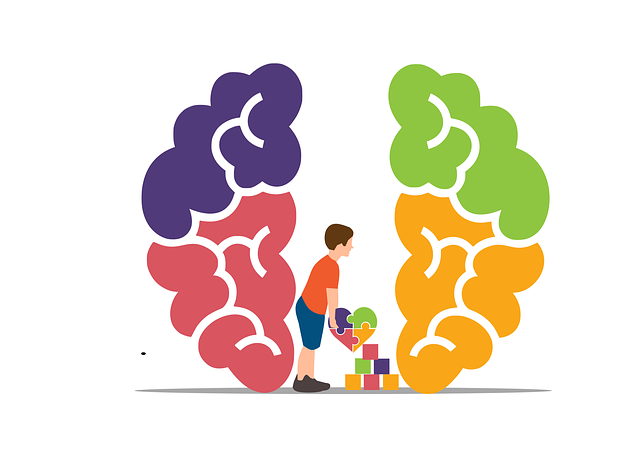In rapidly growing Colorado Springs, where anxiety levels rise with the pace of life, integrating Colorado Springs Anxiety Therapy into wellness coaching is vital. These programs use evidence-based methods like CBT and mindfulness to teach clients mood management and coping strategies for daily pressures. Public awareness campaigns, coupled with self-care promotion, aim to normalize mental health conversations, reduce stigma, and encourage early intervention. This strategic approach, tailored to the city's needs, fosters a supportive environment for effective therapy, contributing to a healthier Colorado Springs community.
Mental wellness coaching is gaining prominence, especially in vibrant cities like Colorado Springs. This article explores the growing need for specialized programs addressing mental health challenges, focusing on anxiety therapy integration within coaching models. We delve into effective strategies for designing and implementing successful coaching programs, highlighting best practices to enhance overall well-being in Colorado Springs communities. By combining therapeutic techniques with coaching methodologies, these initiatives aim to combat anxiety and promote resilient individuals.
- Understanding the Need for Mental Wellness Coaching Programs in Colorado Springs
- Designing Effective Anxiety Therapy Integration within Coaching Models
- Implementing and Evaluating Success: Best Practices for Coaching Programs Development
Understanding the Need for Mental Wellness Coaching Programs in Colorado Springs

In Colorado Springs, the demand for mental wellness support has been steadily rising, highlighting a pressing need for accessible and effective coaching programs. The city’s fast-paced lifestyle and unique challenges can contribute to heightened stress levels and mental health concerns, particularly with issues like anxiety on the rise. Therefore, integrating Colorado Springs Anxiety Therapy into coaching initiatives is paramount.
With a focus on Mood Management, these programs aim to empower individuals with coping strategies for everyday pressures. Public Awareness Campaigns Development can play a crucial role in normalizing conversations about mental wellness, breaking down stigmas, and encouraging early intervention. By promoting Self-Care Practices, coaches can guide clients towards sustainable habits that enhance overall well-being.
Designing Effective Anxiety Therapy Integration within Coaching Models

In the realm of Mental Wellness Coaching Programs Development, integrating effective anxiety therapy within coaching models is a pivotal step in addressing the growing need for accessible support, particularly in urban centers like Colorado Springs. The integration should be structured to leverage evidence-based techniques that cater to diverse client needs. One such approach involves tailoring sessions to help individuals identify and manage anxiety triggers, using tools like cognitive-behavioral therapy (CBT) and mindfulness practices. These strategies not only empower clients but also enable them to apply learned skills in real-world settings, enhancing the overall effectiveness of coaching programs.
Furthermore, fostering a safe and supportive environment is crucial for successful anxiety therapy integration. Coaches play a vital role in promoting open dialogue, encouraging self-reflection, and teaching conflict resolution techniques to help individuals navigate challenging interactions. By combining these therapeutic elements with tailored coaching models, Mental Wellness Coaching Programs Development can significantly contribute to public awareness campaigns aimed at reducing the stigma around anxiety and mental health issues, ultimately enhancing the quality of life for residents in Colorado Springs and beyond.
Implementing and Evaluating Success: Best Practices for Coaching Programs Development

Implementing successful mental wellness coaching programs requires a strategic approach, especially when addressing prevalent issues like anxiety in urban centers such as Colorado Springs Anxiety Therapy. Best practices involve a multi-faceted strategy, starting with defining clear goals and objectives tailored to the target population’s needs. This may include improving emotional regulation skills, fostering mental health awareness, or enhancing stress management techniques.
Regular evaluation is essential to ensure program effectiveness. Utilizing evidence-based assessment tools and gathering participant feedback allows coaches to measure progress, identify areas of improvement, and adapt their methods accordingly. By incorporating these best practices, organizations can develop coaching programs that not only meet but exceed expectations, fostering a healthier and more resilient community through initiatives like Stress Management Workshops Organization.
Mental wellness coaching programs in Colorado Springs are becoming increasingly vital to address the growing need for accessible anxiety therapy. By integrating effective coaching models that incorporate anxiety management techniques, we can empower individuals to take control of their mental health. Implementing best practices and evaluating program success ensures that these initiatives make a tangible difference in the lives of those seeking support. Through innovative approaches, Colorado Springs can become a leader in providing comprehensive mental wellness solutions, enhancing the well-being of its residents.














